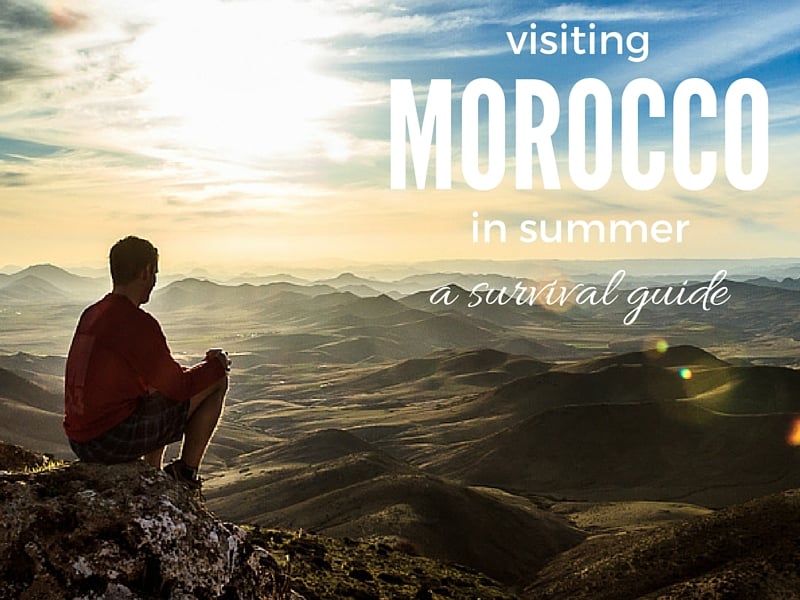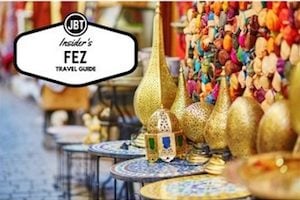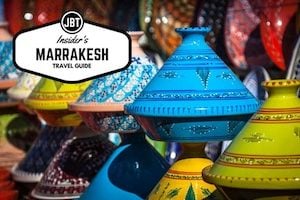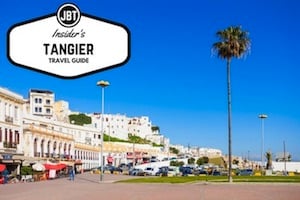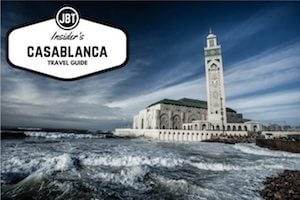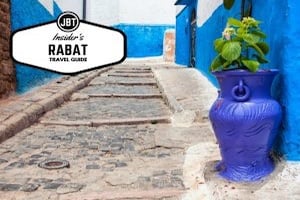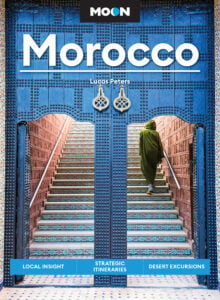Morocco is an increasingly popular travel destination year-round. But as the seasons change throughout the year, so do the opportunities visitors have to experience Morocco’s culture and history. Whether you’re into water sports, mountain trekking, cultural experiences or historical sites – you’ll find that the optimal time for exploring all of these sides of Morocco can vary throughout the year. If you’re planning on visiting Morocco in summer there are a few things to keep in mind.
Generally, the Spring and Autumn months are when Morocco sees most of its international visitors as the more mild climate is favorable. But, the summer months offer special treats to travelers too. Summer is Morocco’s low season for international tourism and its high season for domestic tourism. Local Moroccans will usually take their month-long vacation in August and jet off to the cooler coastal towns, particularly in the north of Morocco. They will be joined by Moroccans living abroad who travel back home at this time to visit family and friends.
If you decide to visit Morocco in the summer, some of the things you can expect include major discounts on accommodation prices (except for those in the coastal region), lively music festivals, and a chance to experience the real Morocco. Not to mention the blazing sun that will pair beautifully with the country’s sandy coastline.
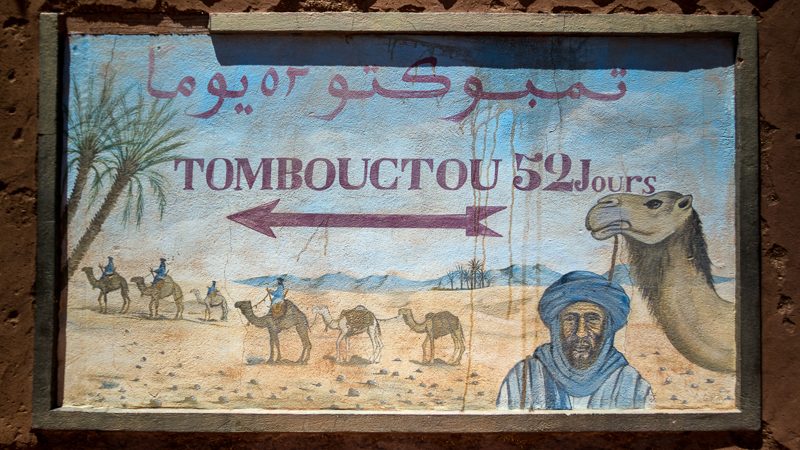
Visiting Morocco in Summer – The Basics
Morocco’s climate is as diverse as its geography. From the cooler Atlas Mountains to the unforgivingly hot Sahara Desert, and the windy coastal region, the weather throughout the country varies greatly. This is even more true during the summer. Generally speaking, Morocco boasts a subtropical climate. Its temperatures can fluctuate anywhere between a chilly 5ºC (41ºF) in the winter months and a boiling 50ºC+ (120ºF) in the peak of summer in the desert.
Morocco’s coastal region features a more moderate climate tempered by the Mediterranean Sea and Atlantic Ocean. Here, summers average high temperatures ranging between 29ºC (84.2ºF) and 32ºC (89.6ºF). The further you get away from the coast, the more extreme the temperatures become. Marrakesh, for example, features a semi-arid climate with very little precipitation in the summer (2mm in total). Its average high temperatures ranges from 31ºC (88ºF) and 36.5ºC (98ºF) between June and August. The Mediterranean climate in Fez means the city gets a little more rain than Marrakesh but temperatures still soar at an average of 35ºC (95ºF) in the summer. But the Sahara Desert takes the crown for the hottest place in Morocco: in the heat of the summer, temperatures average 38ºC (100ºF) and the sand temperature can easily surpass 80ºC (176ºF).
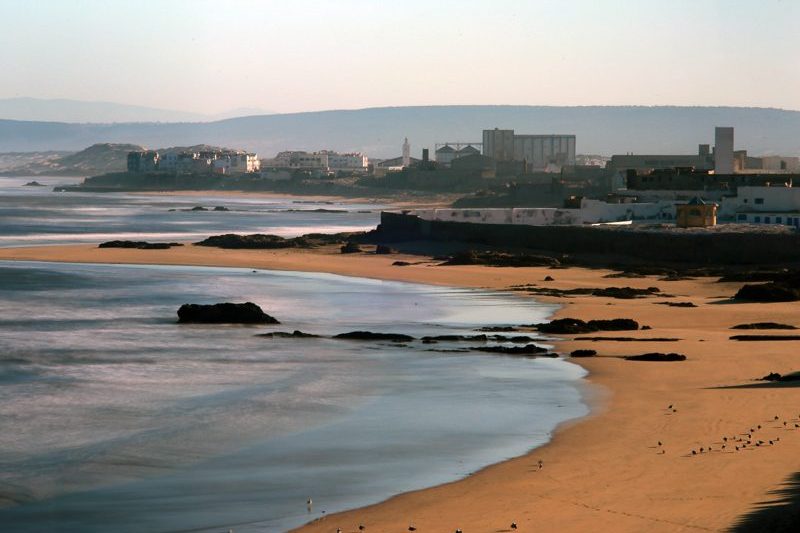
Simple Survival Tips
All this talk of boiling temperatures might seem a little overwhelming. But traveling through Morocco in the summer is completely feasible and can be rewarding. Here are a few things to keep in mind when visiting Morocco in the summer:
- Enjoy the warm nights. You’ll find that in the summer time, Morocco’s cities really come alive after the sun goes down. In Marrakesh, food stalls, snake charmers and musicians all set up at Djemaa El Fnaa to keep visitors well fed and entertained. In cities across the country you’ll quickly discover much of life happens after the sun goes down. Head out in the early evening hours and discover Morocco’s lively night scene.
- Make AC your best friend. Air-conditioning is a must if you’re traveling through Morocco in the summer. And if you choose to go on one of our exciting tours, rest assured that all vehicles and hotels are well equipped with air conditioning to keep you cool on those hot summer days.
- Schedule your walking tours for the morning. If you’re visiting historic and cultural sites in Morocco’s cities, try to schedule these visits in the morning. Chances are, temperatures will be cooler in the earlier hours of the day and you will have plenty of shady spots to take cover in if the sun gets too hot.
- Take some precautions. Temperatures will be high in the summer months so make sure you stay hydrated throughout the day. Protect your skin with sunscreen, long and loose clothing and a wide-brimmed hat.
- Take it slow. Whatever you decide to do during your time in Morocco, the most important thing to keep in mind is to take it easy. The heat will affect the pace at which you will be able to explore the country sometimes, and that’s perfectly fine. The most important thing is to stay hydrated and safe while having a good time discovering Morocco.
- Stay hydrated. Drink plenty of water all day long. It is very easy to become overheated and dehydrated quickly. Always carry water and drink, drink, drink!
- Stay in hotels or riads with pools. Besides air conditioned rooms, a refreshing pool will be your favorite hang-out spot when the afternoon sun starts to get a little too hot. And after spending your morning hours exploring Morocco’s exciting cities, nothing will feel better than a relaxing afternoon dip in the pool.
- Escape the cities. If you want to avoid the heat at all costs while still exploring Morocco, your safest bet is to head out of the country’s major cities. Morocco’s coast is a refreshing option to discover picturesque towns such as Agadir, Essaouira, Tangier and Rabat. Here, temperatures tend to be cooler than in southern Morocco and the ocean breeze will offer a refreshing break from the summer sun. If the outdoors is your true calling, opt for exploring the chillier Atlas Mountains or Rif Mountains. You will find plenty of trekking opportunities filled with interesting natural and cultural highlights to discover along the way.
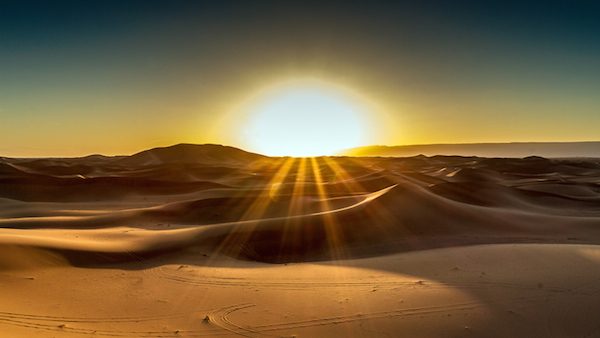
So Should You Visit Morocco in the Summer?
Absolutely. All seasons offer their own unique perspective of Morocco, and the summer time will give you a different look at Morocco.
A little known fact is that Morocco is home to many festivals – several of which happen during the summer months. The Fes Festival of World Sacred Music takes place over the course of one week in June and gathers brilliant musicians from all over the world to create a “beacon of peace from the Islamic world”. Also in June, the Gnaoua World Music Festival takes over the sleepy coastal town of Essaouira to celebrate the music and arts of the Gnaouas.
Fewer international travelers and more domestic tourism means you’ll be able to connect with more locals and witness cities and towns come alive with their traditional routines and festivities. So start getting ready for your Moroccan summer and contact our team to get an individualized itinerary crafted according to your travel needs and expectations.
Updated Oct, 2019

